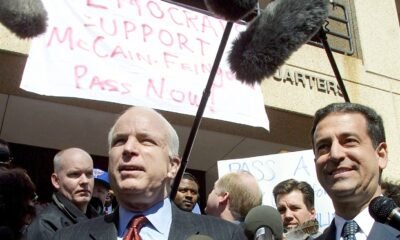Arizona Supreme Court
It’s Our Money, Not Theirs!

Arizona officials are facing backlash as taxpayers demand transparency about public funds. High-profile government employees, including a union leader who doesn’t actually work for the city, lament their obligations to perform union duties while fulfilling their roles as emergency dispatchers. Another public school superintendent recently expressed pride in enjoying taxpayer-funded vacations at luxury resorts.
The crux of the issue lies in the misappropriation of taxpayers’ hard-earned money. Taxpayer dollars should not serve as a slush fund for bureaucratic perks that benefit officials rather than the public who funds them.
Recently, the Arizona Supreme Court unanimously deemed the practice of “release time” unconstitutional. This practice allowed government workers to perform union duties on taxpayer time, costing Phoenix taxpayers an estimated $3.7 million annually. The court noted that this arrangement violated the Arizona Constitution’s Gift Clause, which prohibits taxpayer-funded gifts to private entities, labeling it an “impermissible subsidy.”
In the aftermath of the ruling, Frank Piccioli, the president of Phoenix’s chapter of the American Federation of State, County and Municipal Employees, expressed frustration. He may now have to return to his role as an emergency dispatcher while managing union affairs outside of work hours. Taxpayers face a critical choice: prioritize more dispatchers ready to respond to emergencies or allow union officials to leverage public resources for private gains.
Taxpayer funds should not underwrite union salaries. Union leaders should raise funds from their members, not from collective taxpayer coffers.
In a related incident, Jeremy Calles, the superintendent of Tolleson Union High School District, drew ire after the Goldwater Institute revealed that school administrators indulged in multi-day retreats at upscale resorts. Calles claimed these trips were cost-effective, although many districts often opt for more economical local retreats.
As rising homelessness and poor financial management plague cities like Phoenix and Tucson, officials have funneled over $200 million toward addressing the issue since 2021. However, conditions have deteriorated significantly, and officials have struggled to provide clear accounting of how funds have been utilized.
The Goldwater Institute’s Proposition 312 aims to hold municipalities accountable and provide reparations to affected residents as the budget mismanagement continues.
Arizonians are expressing their discontent with the wasteful expenditures of their tax dollars. Public scrutiny is a necessary response to decades of unchecked government spending. Public employees must adapt to this newfound transparency and understanding of taxpayer priorities.
In summary, officials must remember that taxpayer dollars are not a private reserve for luxury spending or no-show jobs. Continued accountability will be essential as the citizens demand change.
















